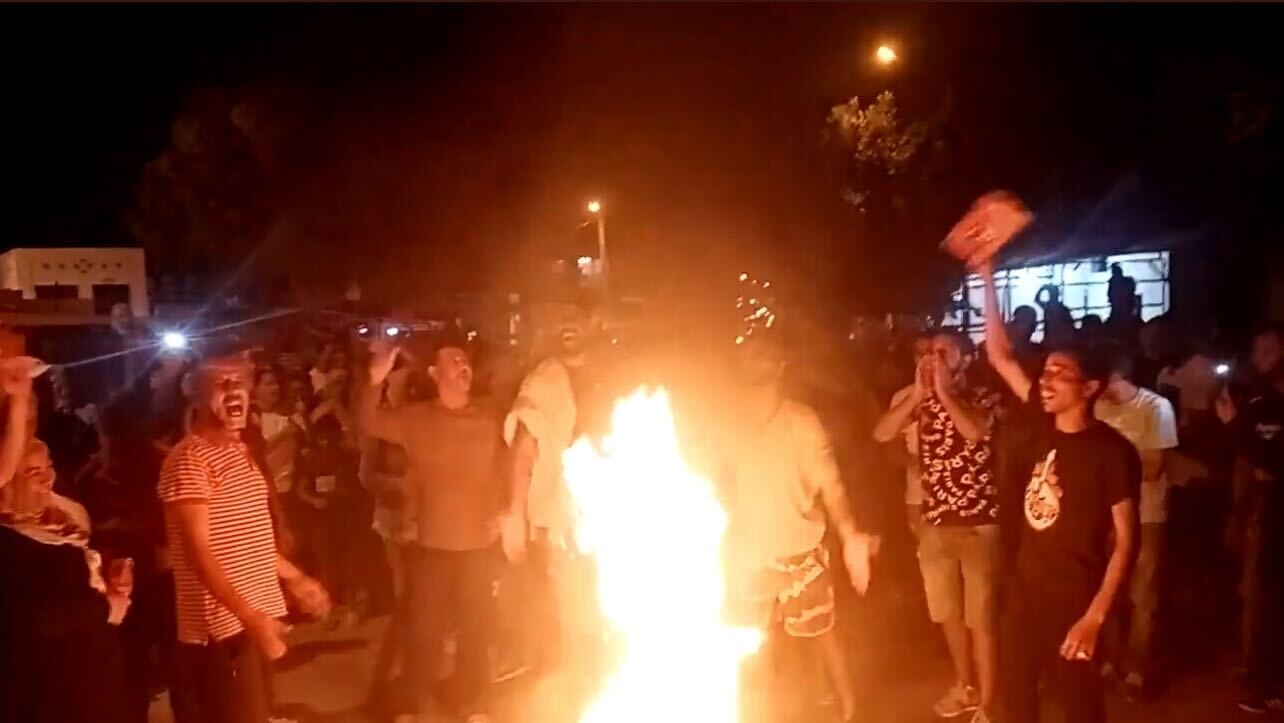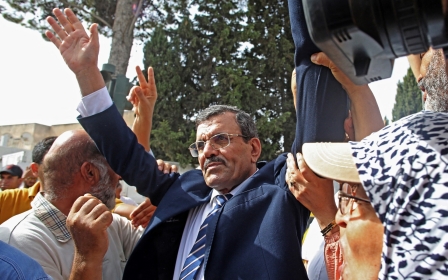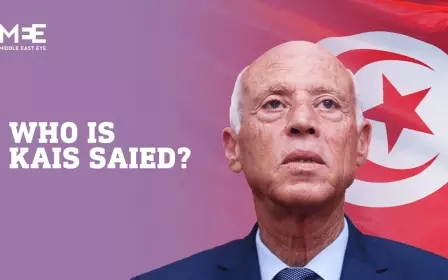Tunisians protest against high prices and food shortage

Hundreds of Tunisians took to the streets of capital Tunis on Sunday night to protest against high prices, poverty and shortages of foodstuff.
Earlier this month, Tunisia's government raised the price of cooking gas cylinders by 14 percent and fuel by 3 percent, in an attempt to reduce energy subsidies as sought by the country’s international lenders.
The cooking gas price increase was the first such hike in 12 years.
With inflation at nearly 9 percent and a shortage of several food items because the country cannot afford to pay for some imports, demonstrators rallied in the Douar Hicher district of the capital.
Protesters held loaves of bread in the air, while angry youths burned tyres.
New MEE newsletter: Jerusalem Dispatch
Sign up to get the latest insights and analysis on Israel-Palestine, alongside Turkey Unpacked and other MEE newsletters
Others chanted “Jobs, freedom and national dignity,” “Where is sugar?”, “We can’t support crazy price hikes” and “Where is Kais Saied?”
Saied, the country’s president, suspended parliament in July 2021, sacking the prime minister and ruling by decree in a seizure of extensive powers which critics branded a “constitutional coup”.
He consolidated his one-man rule two months ago after Tunisia voted for a new constitution, in a referendum plagued by low turnout and boycotts from opposition groups.
Compounding the political crisis, his government has now come under criticism as the country suffers a worsening financial crisis, and is seeking to secure an International Monetary Fund loan to save public finances from collapsing.
A widely circulated video on social media on Sunday showed chaotic scenes of Tunisians in a supermarket scrambling and struggling to buy bags of sugar.
Earlier this month, Hamish Kinnear, Middle East and North Africa analyst at Verisk Maplecroft, told Middle East Eye that Tunisia is one of the main countries in the region dependent on food and fuel imports and is highly "exposed to high international prices".
At the time, he warned that Tunisia, widely seen as the epicentre of the Arab Spring, remains "vulnerable to civil unrest risk".
"Political chaos [in Tunisia] is hampering efforts to secure economic aid from international financial institutions like the IMF, though any deal with the IMF is likely to include austerity measures that provoke further civil unrest," said Kinnear.
Middle East Eye delivers independent and unrivalled coverage and analysis of the Middle East, North Africa and beyond. To learn more about republishing this content and the associated fees, please fill out this form. More about MEE can be found here.




